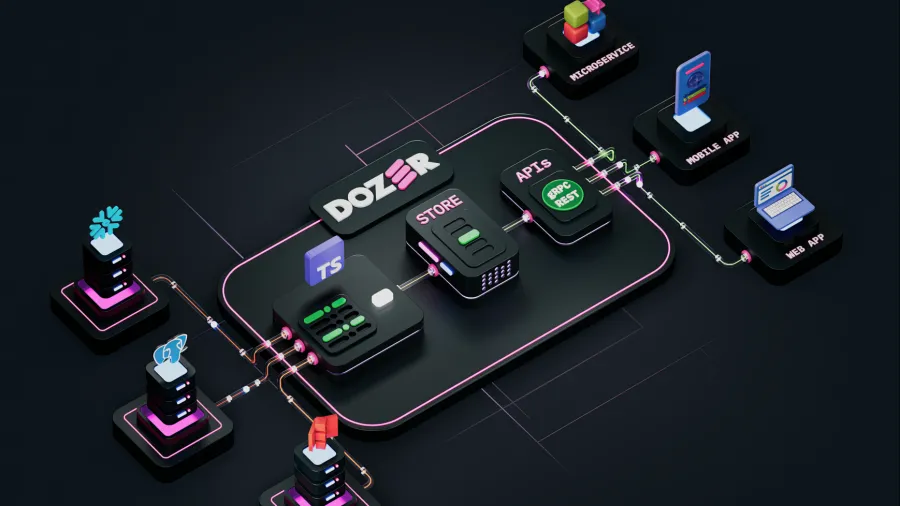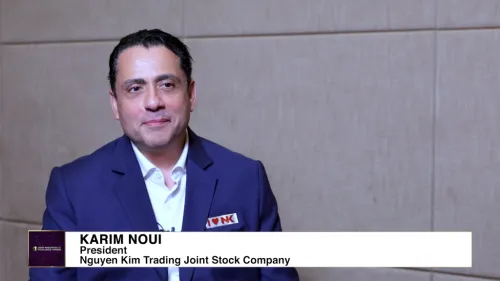
Startup slashes need for big teams in data app development
Through Dozer, data engineers can instantly build a data serving infrastructure instead of months.
In their previous positions, Vivek Gudapuri and Matteo Pelati frequently constructed data infrastructures from the ground up, a process both time-consuming and peripheral to the main business objectives. Driven by the desire to enable companies to concentrate on their primary product challenges, they founded Dozer.
Dozer is a data infrastructure platform that cuts the need for big data teams in data app development, as well as the time needed for such.
“Typically, to create real time data application programming interfaces (APIs), it will require a complex data build,” Gudapuri told the Singapore Business Review.
“Sometimes it takes a large team and several months of effort to actually kind of produce the basic infrastructure that is required to work on customer facing problems, we want to productise that and offer a very seamless experience. Instead of taking months, you could actually get started in days doing the same thing,” he added.
What Dozer basically does is allow data engineers to build customer facing data products “very easily,” said Gudapuri.
“Instead of worrying about data infrastructure, basically they can — with a little bit of configuration — produce a full infrastructure and can start working on mobile applications that could actually leverage the data API Dozer produces,” he said.
In typical data engineering scenarios, they will have data coming from transactional databases such as MySQL, from data warehouses such as Snowflake and other application sources that are available.
“What Dozer does is with a few lines of configuration, you can actually bring data from any of these sources, and immediately produce them as APIs. That means you don't need a large data engineering team that will have to create pipelines and transform the data, aggregate the data and expose them as API. That's something Dozer will immediately do for you,” he said.
According to Gudapuri, Dozer is built in low-level languages which allows for “a lot more performance.” This is also amongst Dozer’s edge compared to similar platforms in the market.
Explaining the name of the startup he co-founded with Matteo Pelati, Gudapuri said “Dozer” came from the word “bulldozer,” which also happens to be the name of a tool used by Netflix to move their data.
For businesses keen to use Dozer, the startup charges its users depending on how much time they run the platform.
“We are usage based. Business will bring up a data platform using Dozer and we basically run instances for you. We have basically a usage-based model based on the number of hours you use this particular type of instance,” he explained.
Plans
The Sequoia Capital-backed startup recently raised US$3m in a seed funding round which Gudapuri described as a “pretty pleasant experience.”
“Our funding was pretty straightforward. Our funding took basically a month’s time,” he shared.
Gudapuri said he and Pelati plan to use the funds they raised to launch their cloud offering.
“We are working with multiple POCs (proof of concepts) with enterprises, banks, telcos, etcetera, but we will have a cloud self-service offering coming up pretty soon,” he said. “We will mainly use this funding towards product development and go to market.”
In the next five years, Dozer plans to position itself in key areas such as the US, India, and Southeast Asia.
“Currently, we are a team of 10 to 15 people and we are fully remote and don’t even have an office but we plan to expand. We [also plan to] expand in terms of verticals. We will position ourselves in a few areas,” he said.
Gudapuri said telcos and banks and financial institutions usually tap Dozer “mainly because they have this problem of disparate data sources, and they have to internally create a large data platform to solve some of these problems.”
“Typically, we have been hearing [that] some of the internal builds cost tens of millions of dollars. In some cases, you could actually do that in a much, much faster fashion. So I think the natural fit for us is there. But I think we are agnostic in terms of verticals, we are an infrastructure layer. So, we can actually offer a solution to many verticals,” he added.


















 Advertise
Advertise







